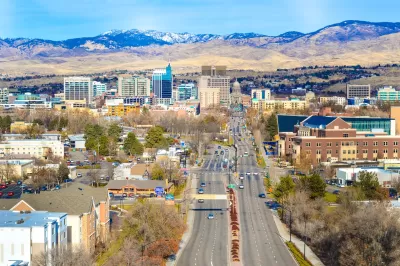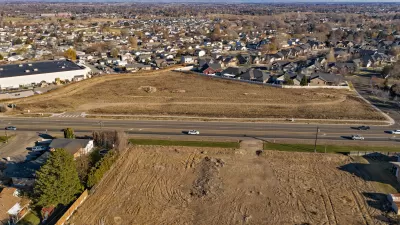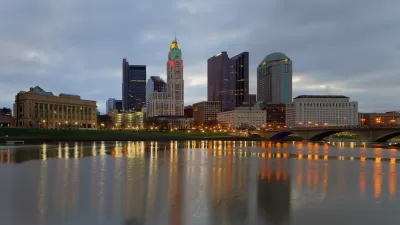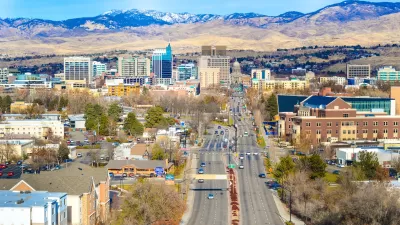A years-long process has culminated in a proposal that would encourage the creation of affordable housing, promote transit-oriented development, and position the city for less car-oriented growth.

A proposed update to the city of Boise’s zoning code aims to reimagine the Idaho city to be more sustainable, equitable, and affordable through adjusting regulations on “Building heights. Parking requirements. Neighborhood markets. Lot sizes. Transit. Mixed-use complexes.”
As Ian Max Stevenson reports in the Idaho Statesman, “Boise hopes to avoid the pitfalls of sprawl, unaffordability and car reliance that many other cities have faced” as the city grows. The revised zoning rules would permit higher density, include affordable housing incentives, decrease minimum lot sizes, and reduce parking requirements.
“While many of the zoning revisions relate to allowed uses themselves, Boise is also planning to streamline application processes for projects that planners want to see.” The new rules would incentivize adaptive reuse of older buildings and create mixed-use districts near transit corridors and other activity centers.
Critics of the plan say permitting more density outright would remove leverage from the city and could lead to the destruction of affordable housing. The city also lacks a comprehensive public transit system to encourage people to reduce their car use. Boise city planner Tim Keane acknowledges this weakness and says more transit investment is needed, but that how the city grows is a crucial component. “If you don’t have the development pattern, you’ll never have a transit system.”
FULL STORY: Boise wants more affordable housing, higher density, more transit. Here’s the plan

Alabama: Trump Terminates Settlements for Black Communities Harmed By Raw Sewage
Trump deemed the landmark civil rights agreement “illegal DEI and environmental justice policy.”

Planetizen Federal Action Tracker
A weekly monitor of how Trump’s orders and actions are impacting planners and planning in America.

Why Should We Subsidize Public Transportation?
Many public transit agencies face financial stress due to rising costs, declining fare revenue, and declining subsidies. Transit advocates must provide a strong business case for increasing public transit funding.

Understanding Road Diets
An explainer from Momentum highlights the advantages of reducing vehicle lanes in favor of more bike, transit, and pedestrian infrastructure.

New California Law Regulates Warehouse Pollution
A new law tightens building and emissions regulations for large distribution warehouses to mitigate air pollution and traffic in surrounding communities.

Phoenix Announces Opening Date for Light Rail Extension
The South Central extension will connect South Phoenix to downtown and other major hubs starting on June 7.
Urban Design for Planners 1: Software Tools
This six-course series explores essential urban design concepts using open source software and equips planners with the tools they need to participate fully in the urban design process.
Planning for Universal Design
Learn the tools for implementing Universal Design in planning regulations.
Caltrans
Smith Gee Studio
Institute for Housing and Urban Development Studies (IHS)
City of Grandview
Harvard GSD Executive Education
Toledo-Lucas County Plan Commissions
Salt Lake City
NYU Wagner Graduate School of Public Service





























